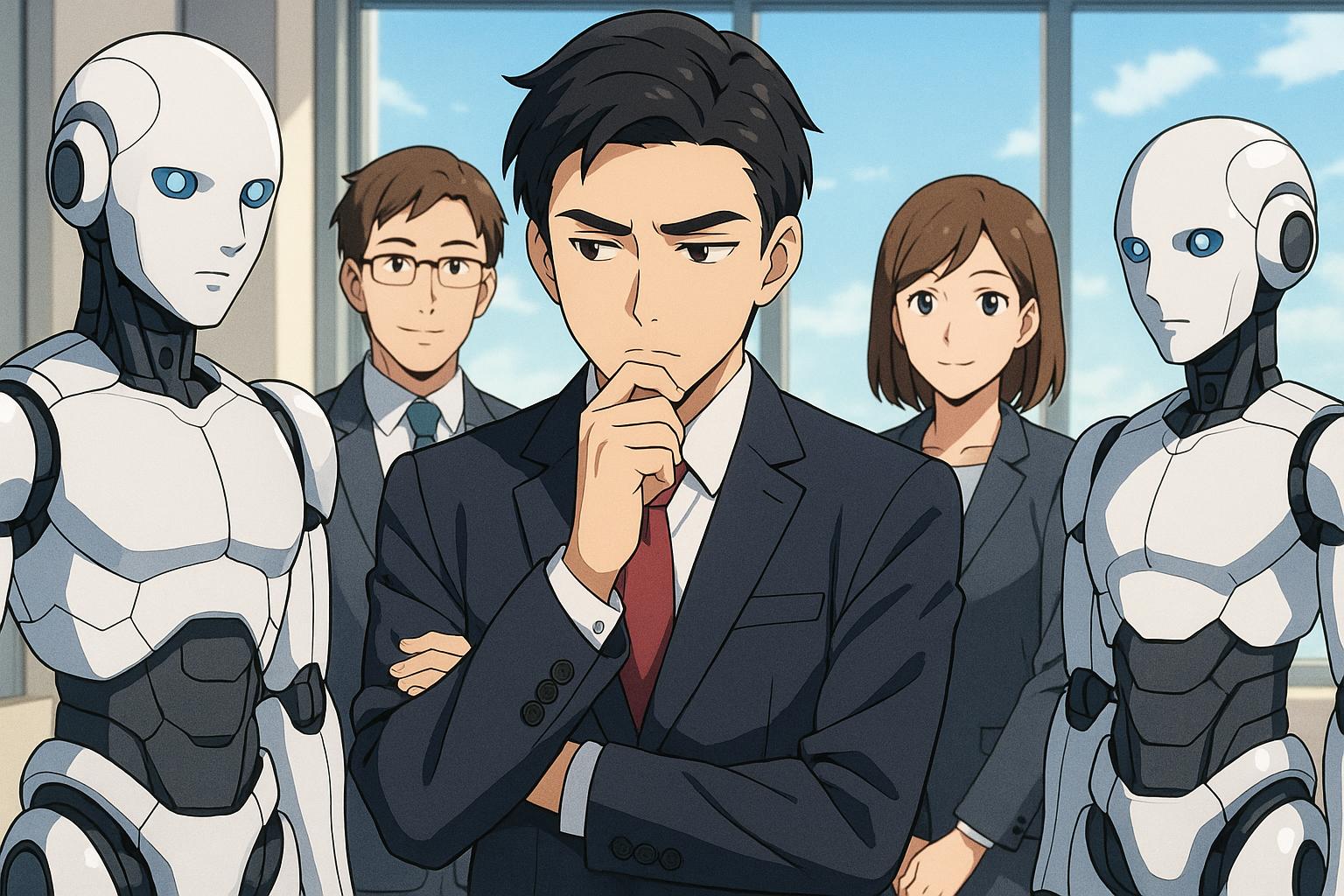The integration of artificial intelligence (AI) into workplace structures is rapidly transforming industries, with wide-ranging implications for employment and the nature of work itself. The recent Orgvue survey has illuminated a tumultuous landscape where leaders express both optimism and regret regarding their AI investments. While nearly 90% of businesses have seen value from AI initiatives, almost half of the leaders surveyed believe that AI will inevitably lead to significant job displacement within their organisations. This sentiment is echoed by the alarming statistic that one-third of participants have already reported employee departures linked to the rising influence of AI technologies.
Despite the apparent benefits, the decision to automate roles through AI is not without its complexities. Among the 39% of leaders who have made redundancies predominantly due to AI, an overwhelming 55% now regret their choices. This regret likely stems from the challenges associated with integrating human workers with AI systems and the pivotal role that skills play in this transition. The misconception that AI can seamlessly replace human creativity, empathy, and critical thinking often leads to misguided strategic decisions, thereby neglecting the intricate value humans contribute to the workplace.
Reflecting on past industrial practices, one finds a salient parallel in the offshoring trend of the late 20th century. Companies once optimistically chased cost efficiency by moving jobs abroad, only to realise the hidden complexities and long-term drawbacks of such decisions. Reshoring became prevalent as businesses discovered that customer service and organisational agility often outweighed the benefits of cheaper labour. The need for a comprehensive understanding of value, beyond mere figures on spreadsheets, remains crucial as organisations grapple with the implications of AI.
In addressing the pitfalls of relying too heavily on technology, it is essential to recognise the unique contributions individuals make to an organisation. The oft-overlooked roles—such as that of a hotel doorman—serve as prime examples. This position is not merely about opening doors but encompasses creating memorable experiences for guests. Such human engagement drives customer loyalty and revenue, a sentiment echoed by contemporary leaders who recognise that their workforce is a critical asset, not a liability.
Amidst this backdrop, reports from expert commentators reveal a significant trend towards hybrid human-AI teams. Research suggests that businesses expect to maintain around 61% of current roles even as they pursue a 19% reduction in overall costs through AI integration. This evolution points to a delicate balance where AI acts as a complement to human capabilities rather than a substitute. Companies like Salesforce highlight the potential for agentic AI to streamline operations and enhance productivity without necessarily diminishing the human element of teamwork.
Nevertheless, the rapid ascent of AI necessitates acute awareness of its potential to disrupt various sectors. The recent strikes in Hollywood, driven by concerns over AI's encroachment on actors' roles, exemplify the urgent nature of these discussions. As industries rethink traditional practices, they must contend with the implications of AI on professions that once seemed immune to automation. Economists have warned that even roles traditionally perceived as uniquely human—such as writers and translators—are now increasingly susceptible to displacement.
The challenge extends beyond simple job replacement; it encompasses broader ramifications for social equity and economic stability. Vulnerable populations, such as Latino workers, face heightened risks as automation targets industries where they are overrepresented. Reports suggest that these workers often lack the necessary digital skills and access to technology, compounding the difficulties posed by automation. Hence, targeted educational and training initiatives are becoming imperative to ensure that all workers can thrive in an AI-driven economy.
As we navigate this uncharted territory, it becomes evident that AI must not be viewed as an insurmountable force against human workers. Instead, it should be seen as a tool to enhance their capabilities. Embracing AI requires a shift in perspective—one that prioritises creativity, innovation, and human connection. By fostering environments that nurture talent and encourage collaboration, businesses can achieve a future where AI amplifies human potential rather than diminishes it.
In this context, leaders are urged to adopt a thoughtful approach to AI integration, ensuring that technology enhances the workplace experience rather than complicating it further. As industries evolve, the most successful organisations will be those that champion the unique qualities of their personnel, recognising that a healthy blend of human intuition and artificial intelligence can drive sustainable growth and innovation.
Reference Map
- Paragraphs 1, 2, 3, 4: [1]
- Paragraph 5: [2]
- Paragraph 6: [3]
- Paragraph 7: [4]
- Paragraph 8: [5]
- Paragraph 9: [6]
- Paragraph 10: [7]
Source: Noah Wire Services
